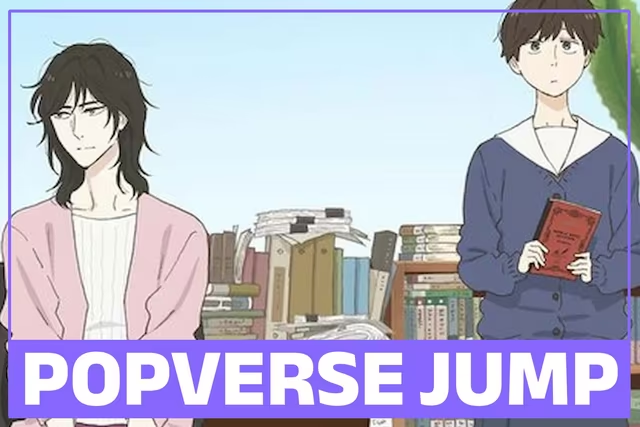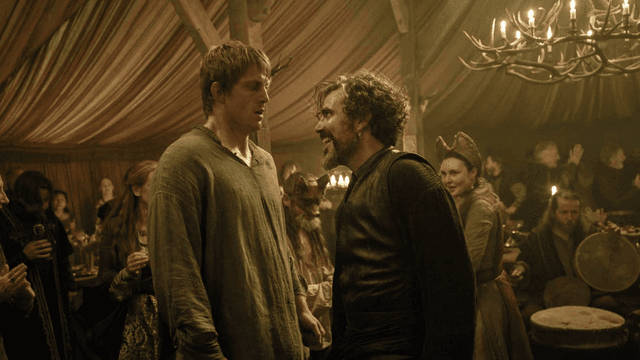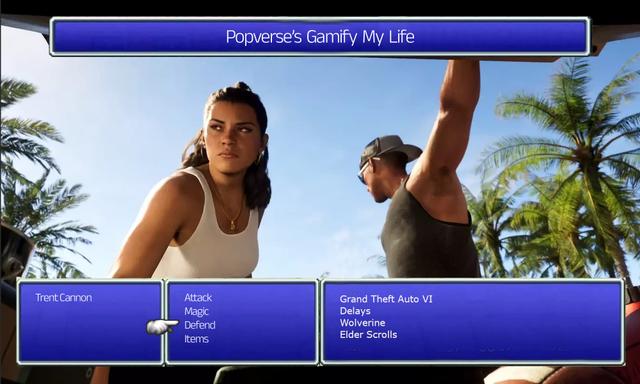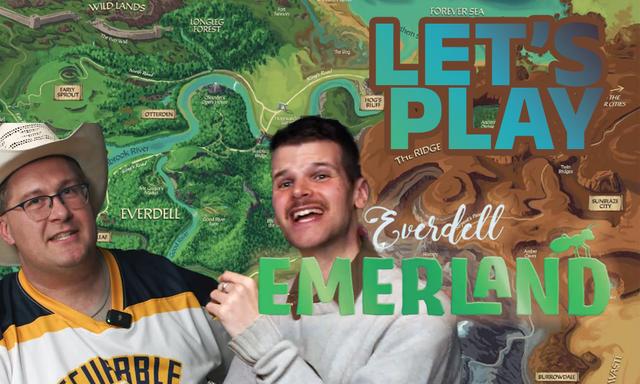If you click on a link and make a purchase we may receive a small commission. Read our editorial policy.
Marvel Comics has a superhero problem solver, Jonathan Hickman, with a goal to create (or revamp) ideas that be their next Avengers, X-Men, and Fantastic Four
After successfully reviving the Ultimate Marvel line, Jonathan Hickman comes forward with his new job at the company: building new franchises (by rebuilding old ones).

Popverse's top stories
- Joker and Harley Quinn are back together as former Marvel TV boss Jeph Loeb charts a big Batman & Wonder Woman crossover with Jim Cheung
- From the Ball to the Burlesque: ECCC 2026's Tavern is where to sidequest, Seattle-style
- I can't wait to cry my eyes out at Journal with Witch this January on Crunchyroll [Popverse Jump]
In 2010, Jonathan Hickman was one of five writers that Marvel Comics dubbed its 'Architects.' Hickman is the last of those five writers actively working in Marvel Comics' superhero line, but the mission statement of the Architects back then as per Marvel editor-in-chief C.B. Cebulski, seems even more true than now - "each of their projects lays the groundwork for the future of the Marvel Universe..."
15 years later, however, I would say Hickman's role has changed from architect to superhero problem-solver - instead of building up Marvel's big pillars like the Avengers, the Fantastic Four, and X-Men, it's about rebuilding the other parts of the House of Ideas that need renovation. In fact, when interviewer David Harper called the current event series Imperial work on the "fixer-upper" that is the Marvel cosmic line, he agreed. And it's something he did (and is doing) for the revamped Ultimate Marvel line, as well as the attempts at revitalizing the magic side with G.O.D.S., and also adult-oriented, non-continuity books like Wolverine: Revenge and Aliens. vs. Avengers.
"... a big thing that I do for the company right now is I try and give them a tree to hang some branches off of," says Hickman to Harper as part of the long-form Off Panel interview. "It doesn't have to start from an origin point. That's kind of my job is doing the origin point, and so that they're moving with a little bit more velocity right out of the gate."
In many ways, what Hickman is doing now is something former Marvel writer Warren Ellis did for years at the company, doing dramatic revamps on the likes of Iron Man, the Thunderbolts, Moon Knight, the New Universe, and the Inhumans. Hickman had been doing this sort of work innately with Nick Fury and S.H.I.E.L.D., the Fantastic Four, the Avengers, and the X-Men, but here now in 2025 and Hickman is comfortable saying it's his specific mission at Marvel - but looking outside the established titles.
"And so, you know, we've been doing those kind of projects, as opposed to me sitting down and doing something like House of X / Powers of X, or the Avengers/New Avengers thing, where I'm coming in to tell a really, really big story that is for the most part, even though it's inside of Marvel continuity itself, contained, and it's kind of evergreen, and it's taking really, really wild big swings. And so that's the difference there."
The next big swing: Marvel's Imperial

Imperial, which launched this month, is a broad revamp of the outer space side of the Marvel Comics universe - nicknamed for decades as 'Marvel Cosmic' - and Hickman has a goal for it to propagate an organized new line of Marvel Cosmic titles going forward, where "three or four other writers can come in, and they can kind of pick up a book that's already moving forward."
Interviewer David Harper called the current state of the cosmic side of Marvel as a "fixer-upper" - as in a dilapidated house that needs some work, but the 'bones are good' so to speak. Hickman, agreed.
"It is. We like those books. We like those kind of books. I love Annihilation. I love Marvel Cosmic. We have so much good stuff. You know, there's so much fruit on the tree that it's a shame that we're not picking it," says the writer. "And so this is absolutely 100% a 'Hey, let's see if we can't do in the Marvel cosmic corner what we did in the Ultimate Universe!' where we take a small group of creators and we have a really cool inflection point, and then we just see if we can make the book sing, you know? And it's the same recipe. Hire good talent, get out of the way. Let's see if they can make their books work. And of course, that'll be up to them, and if fans dig it or not."
The other Marvel micro-lines Jonathan Hickman is kickstarting

In addition to the Hickman work from years ago, he has been building these Marvel 'superstructures' with not only Imperial and the Ultimate line, but also with non-continuity Marvel work such as Wolverine: Revenge and Aliens vs. Avengers (similar to DC's Black Label line), and the TV-show-turned-Marvel-event-that-wasn't in G.O.D.S. Here now, a year and change away from G.O.D.S.' end, Hickman can say publicly that ambitions for the series were more than the reception, and says definitely it didn't sell as much as Marvel wanted for the price they pay for his work.
"[G.O.D.S.] did fine. I think it's not considered a success, even though it's sold better than, especially in trade, than a bunch of other Marvel books. It's just not at the height of where I'm expected to publish books, and so therefore, not as successful," says Hickman. "And so that's all I mean by that, is if I do, if I do a book, it needs to do well, and if it's not doing well, I need to do something better. And that's okay. That's, I mean, those are the rules that I'm playing by. That's fine."
From his conversation with Harper, Hickman seems to be tasked to actively diversify Marvel Comics' line so it isn't as reliant on its longtime bestsellers - the Avengers, the X-Men, the Spider-Mans - and being led down a road of doing even more of those titles, but to create - or in most cases re-create - other characters to step up and carry more of the overall line.
"... if we can get four really, really good titles that do well on their own, and then we do four more a couple more years later, you don't need 10 Avengers books and 14 X-Men books, right?" says the writer. "Forgive me for the inside baseball stuff, but DC doing really well right now is actually really good, because it doesn't mean that Marvel has to produce as many books, but to get the end result of what appears to be a 'healthy market', you know. And so I think that's good too. So we'll see. I mean, it's gonna take a couple years, but we'll see what the other side looks like."
[Editor's note: An earlier version of this story incorrectly attributed a quote to Jonathan Hickman.]
Get ready for what's next with our guide to upcoming comics, how to buy comics at a comic shop, and our guide to Free Comic Book Day 2025.
Follow Popverse for upcoming event coverage and news
Find out how we conduct our review by reading our review policy
Let Popverse be your tour guide through the wilderness of pop culture
Sign in and let us help you find your new favorite thing.
















Comments
Want to join the discussion? Please activate your account first.
Visit Reedpop ID if you need to resend the confirmation email.